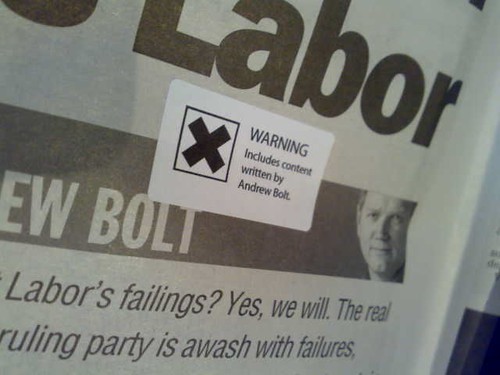‘No one knows’: Andrew Bolt questions how Voice will be chosen and claims proposal will be the ‘start of years of division’
Andrew Bolt #AndrewBolt

Sky News Australia host Andrew Bolt has questioned how the Voice representatives will be chosen if the proposal passes, claiming it will cause “division” among Indigenous communities.
Australians will head to the polls for the Voice to Parliament referendum on October 14 to vote on whether to enshrine an Indigenous advisory body in the Constitution.
During his program on Monday night, Bolt questioned the selection process for the “24 lucky activists” who will form the Voice.
“The crazy thing here is that no one can tell you any of that, because no one knows how or even when the Voice will ever be chosen,” he said on The Bolt Report.
“All we do know is that it’s going to be selected, not elected by a national vote of Aborigines, according to the Voice to Parliament co-design report by activists Marcia Langton and Tom Calma.
“A report that the Albanese government is using as a blueprint so far.”
Bolt cited excerpts from the report which explored potential issues that could arise if the representatives of the Voice were to be elected.
“Many concerns were shared by a considerable majority around the possible limitations and disadvantages of direct elections… issues around eligibility, particularly with regard to confirming indigeneity, which has historically been divisive in some communities,” the report excerpt read.
He also pointed to recent rivalry between two Indigenous groups in Tasmania about the Voice proposal – the Circular Head Aboriginal Corporation and Tasmanian Aboriginal Centre.
In Circular Head, in the state’s north-west, 17 per cent of the population identifies as Aboriginal or Torres Strait Islander, as reported by the ABC.
There are fears from Aboriginal communities in this area that their voices will not be heard if the referendum passes.
CHAC chairwoman Selina Maguire-Colgrave has expressed concerns about the idea of only selecting two Voice representatives per state, as suggested in the proposal’s co-design report.
“In Tassie, we are still fighting for recognition as Aboriginal people – the TAC and the land council don’t recognise many of CHAC’s members,” she told The Australian.
“We see Marcia Langton’s map and the plan for two people from Tasmania – it would be the complete downfall of CHAC should that happen.”
“It (only two Tasmanian voice representatives) would cut our voice off. That’s why we’re voting No. It’s divisive.”
The report also suggests the 24 representatives that make up the national Voice will be determined by local and regional Indigenous voices across the country.
Bolt claimed the Voice to Parliament will be the start of “years of division”.
“No one has a clue how this Voice will be chosen, but you can already tell it’s going to take years, probably, even if you do vote Yes,” he said.
“This is going to be the start of years of division, starting among Aborigines themselves.”
In order for the referendum to be successful, support from four out of six states is required along with an overall national majority of voters.
Tasmania is considered by campaigners to be important for the vote, despite recent polls suggesting the majority of the state will vote No.
Prime Minister Anthony Albanese travelled to the state last week, and was confident Tasmanians will support the Yes campaign despite the polls suggesting otherwise.
Recent poling suggests 43 per cent of Tasmanians intend to vote Yes, while the No vote sits at 48 per cent. Nine per cent of people are undecided.
In South Australia, 48 per cent intended to vote Yes, while 42 per cent have indicated to vote no, and 10 per cent were undecided.
The No campaign is leading in Western Australia and Queensland, while New South Wales and Victoria are showing a Yes majority.
Therefore, Tasmania, along with South Australia, are considered to be crucial for the vote.